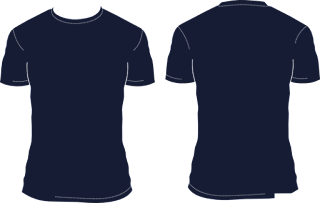The Ultimate Guide to Crafting the Perfect Cosmetics Packaging
Cosmetics packaging is more than just a container for your product; it's an essential part of your brand's identity and a powerful marketing tool. The right packaging can attract customers, convey your brand’s message, and ensure product safety and integrity. Here’s a comprehensive guide to crafting the perfect cosmetics packaging.
1. Understand Your Brand and Audience
Define Your Brand Identity
Before you start designing, you need a clear understanding of your brand identity. Are you luxurious or affordable? Fun or sophisticated? Natural or high-tech? Your packaging should reflect these attributes.
Know Your Target Audience
Understanding your audience is crucial. Are they teenagers or mature adults? Eco-conscious or luxury seekers? Tailor your packaging to meet their preferences and expectations.
2. Functionality and Protection
Choose the Right Materials
Select materials that not only look good but also protect your product. Common materials include plastic, glass, aluminum, and paperboard. Consider the product’s shelf life, sensitivity to light, air, and temperature when choosing materials.
Design for Usability
Your packaging should be easy to open, use, and store. Consider how your customers will interact with your product daily. For instance, pump bottles are often preferred for lotions, while twist-off caps might be better for creams.
Ensure Durability
Your packaging needs to withstand shipping, handling, and everyday use. Conduct rigorous testing to ensure it doesn’t break, leak, or deteriorate over time.
3. Aesthetics and Branding
Create a Cohesive Look
Your packaging should be a visual extension of your brand. Use consistent colors, fonts, and logos across all your products to create a cohesive brand identity.
Stand Out on the Shelf
In a crowded market, unique packaging can make all the difference. Consider innovative shapes, bold colors, or distinctive designs that catch the eye.
Use High-Quality Graphics
High-quality printing and graphics are essential. They should be sharp, vibrant, and reflective of your brand's quality. Invest in good design and printing services.
4. Sustainability
Opt for Eco-Friendly Materials
Consumers are increasingly eco-conscious. Use recyclable, biodegradable, or reusable materials to appeal to this growing market segment.
Minimize Waste
Design packaging that uses the least amount of material necessary without compromising on protection or aesthetics. This reduces waste and can also reduce costs.
Educate Your Customers
Include information on your packaging about its sustainability. Labels like “100% recyclable” or “made from recycled materials” can positively influence purchasing decisions.
5. Compliance and Safety
Follow Regulations
Ensure your packaging complies with all relevant regulations and standards. This can include labeling requirements, material safety standards, and more.
Include Essential Information
Clearly display important information such as ingredients, usage instructions, expiration dates, and any warnings. This is not only a legal requirement but also builds trust with your customers.
6. Cost Considerations
Balance Cost and Quality
While it's important to keep costs in check, don't compromise on quality. Poor packaging can lead to product damage and a negative customer experience, costing you more in the long run.
Optimize Production
Work with your suppliers to find cost-effective production methods. Bulk ordering materials and using efficient manufacturing processes can help reduce costs.
7. Testing and Feedback
Prototype Testing
Before full-scale production, create prototypes of your packaging. Test them for usability, durability, and visual appeal. Gather feedback from potential customers and make necessary adjustments.
Continuous Improvement
After your product is on the market, continue to gather feedback and look for ways to improve your packaging. Stay updated on new materials, technologies, and design trends.
Conclusion
Creating the perfect cosmetics packaging requires a balance of functionality, aesthetics, sustainability, and cost-effectiveness. By understanding your brand and audience, choosing the right materials, and continuously testing and improving, you can create packaging that not only protects your product but also enhances your brand's image and appeals to your customers.
Let's take a check out more details about upon mold development




Comments
Post a Comment